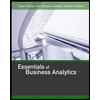
Pfin (with Mindtap, 1 Term Printed Access Card) (mindtap Course List)
7th Edition
ISBN: 9780357033609
Author: Randall Billingsley, Lawrence J. Gitman, Michael D. Joehnk
Publisher: Cengage Learning
expand_more
expand_more
format_list_bulleted
Concept explainers
Question
Chapter 1, Problem 8FPE
Summary Introduction
To discuss: Steps to be taken to repackage in the new field.
Expert Solution & Answer
Trending nowThis is a popular solution!

Students have asked these similar questions
Moose Enterprises finds it is necessary to determine its marginal cost of capital. Moose’s current capital structure calls for 50 percent debt, 30 percent preferred stock, and 20 percent common equity. Initially, common equity will be in the form of retained earnings (Ke) and then new common stock (Kn). The costs of the various sources of financing are as follows: debt, 9.6 percent; preferred stock, 9 percent; retained earnings, 10 percent; and new common stock, 11.2 percent. a. What is the initial weighted average cost of capital? (Include debt, preferred stock, and common equity in the form of retained earnings, Ke.) b. If the firm has $18 million in retained earnings, at what size capital structure will the firm run out of retained earnings? c. What will the marginal cost of capital be immediately after that point? (Equity will remain at 20 percent of the capital structure, but will all be in the form of new common stock, Kn.) d. The 9.6 percent cost of debt referred to earlier…
7. Berkeley Farms wants to determine the minimum cost of capital point for the firm. Assume it is considering the following financial plans: Cost (aftertax) Weights Plan A Debt .................................. 4.0% 30% Preferred stock .................. 8.0 15 Common equity ................. 12.0 55 Plan B Debt .................................. 4.5% 40% Preferred stock .................. 8.5 15 Common equity ................. 13.0 45 Plan C Debt .................................. 5.0% 45% Preferred stock .................. 18.7 15 Common equity ................. 12.8 40 Plan D Debt .................................. 12.0% 50% Preferred stock .................. 19.2 15 Common equity ................. 14.5 35 a. Which of the four plans has the lowest weighted average cost of capital?
Use the Kd (cost of debt) = Y(1 - T), Kp (Cost of preferred stock) = Dp/Pp - F, Ke = D1/P0 + g formulas or I will not understand.
Need use the Kd (cost of debt) = Y(1 - T), Kp (Cost of preferred stock) = Dp/Pp - F, Ke = D1/P0 + g formulas or I will not understand.
Delta Corporation has the following capital structure: Cost Weighted (after-tax) Weights Cost Debt 8.1% 35% 2.84% Preferred stock (Kp) 9.6 5 .48 Common equity (Ke) (retained earnings) 10.1 60 6.06
Weighted average cost of capital (Ka) 9.38% a. If the firm has $18…
Chapter 1 Solutions
Pfin (with Mindtap, 1 Term Printed Access Card) (mindtap Course List)
Knowledge Booster
Learn more about
Need a deep-dive on the concept behind this application? Look no further. Learn more about this topic, finance and related others by exploring similar questions and additional content below.Similar questions
- Delta Corporation has the following capital structure: Cost Weighted (after-tax) Weights Cost Debt 8.1% 35% 2.84% Preferred stock (Kp) 9.6 5 .48 Common equity (Ke) (retained earnings) 10.1 60 6.06 Weighted average cost of capital (Ka) 9.38% a. If the firm has $18 million in retained earnings, at what size capital structure will the firm run out of retained earnings? b. The 8.1 percent cost of…arrow_forwardDillon Enterprises has the following capDillon Enterprises has the following capital structure. Debt ........................ 40% Common equity ....... 60 The after-tax cost of debt is 6 percent, and the cost of common equity (in the form of retained earnings) is 13 percent. What is the firm’s weighted average cost of capital? a. An outside consultant has suggested that because debt is cheaper than equity, the firm should switch to a capital structure that is 50 percent debt and 50 percent equity. Under this new and more debt-oriented arrangement, the after-tax cost of debt is 7 percent, and the cost of common equity (in the form of retained earnings) is 15 percent. Recalculate the firm’s weighted average cost of capital. b. Which plan is optimal in terms of minimizing the weighted average cost of capital?arrow_forwardCompute Ke and Kn under the following circumstances: a. D1= $5, P0=$70, g=8%, F=$7 b. D1=$0.22, P0=$28, g=7%, F=2.50 c. E1 (earnings at the end of period one) = $7, payout ratio equals 40 percent, P0= $30, g=6%, F=$2,20. Note: D1 is the earnings times the payout rate. d. D0 (dividend at the beginning of the first period) = $6, growth rate for dividends and earnings (g)=7%, P0=$60, F=$3. You will need to calculate D1 (the dividend after the first period).arrow_forward
- Terrier Company is in a 45 percent tax bracket and has a bond outstanding that yields 11 percent to maturity. a. What is Terrier's after-tax cost of debt? b. Assume that the yield on the bond goes down by 1 percentage point, and due to tax reform, the corporate tax falls to 30 percent. What is Terrier's new aftertax cost of debt? c. Has the after-tax cost of debt gone up or down from part a to part b? Explain why.arrow_forwardThe Squeaks Cat Rescue, which is tax-exempt, issued debt last year at 9 percent to help finance a new animal shelter in Rocklin. a. If the rescue borrowed money this year, what would the after-tax cost of debt be, based on its cost last year and the 25 percent increase? b. If the receipts of the rescue were found to be taxable by the IRS (at a rate of 25 percent because of involvement in political activities), what would the after-tax cost of debt be?arrow_forwardNo chatgptPlease don't answer i will give unhelpful all expert giving wrong answer he is giving answer with using incorrect values.arrow_forward
- Please don't answer i will give unhelpful all expert giving wrong answer he is giving answer with incorrect data.arrow_forward4. On August 20, Mr. and Mrs. Cleaver decided to buy a property from Mr. and Mrs. Ward for $105,000. On August 30, Mr. and Mrs. Cleaver obtained a loan commitment from OKAY National Bank for an $84,000 conventional loan at 5 percent for 30 years. The lender informs Mr. and Mrs. Cleaver that a $2,100 loan origination fee will be required to obtain the loan. The loan closing is to take place September 22. In addition, escrow accounts will be required for all prorated property taxes and hazard insurance; however, no mortgage insurance is necessary. The buyer will also pay a full year's premium for hazard insurance to Rock of Gibraltar Insurance Company. A breakdown of expected settlement costs, provided by OKAY National Bank when Mr. and Mrs. Cleaver inspect the uniform settlement statement as required under RESPA on September 21, is as follows: I. Transactions between buyer-borrower and third parties: a. Recording fees--mortgage b. Real estate transfer tax c. Recording fees/document…arrow_forwardHello tutor give correct answerarrow_forward
arrow_back_ios
SEE MORE QUESTIONS
arrow_forward_ios
Recommended textbooks for you
 Pfin (with Mindtap, 1 Term Printed Access Card) (...FinanceISBN:9780357033609Author:Randall Billingsley, Lawrence J. Gitman, Michael D. JoehnkPublisher:Cengage LearningPrinciples of Accounting Volume 2AccountingISBN:9781947172609Author:OpenStaxPublisher:OpenStax College
Pfin (with Mindtap, 1 Term Printed Access Card) (...FinanceISBN:9780357033609Author:Randall Billingsley, Lawrence J. Gitman, Michael D. JoehnkPublisher:Cengage LearningPrinciples of Accounting Volume 2AccountingISBN:9781947172609Author:OpenStaxPublisher:OpenStax College Cornerstones of Cost Management (Cornerstones Ser...AccountingISBN:9781305970663Author:Don R. Hansen, Maryanne M. MowenPublisher:Cengage Learning
Cornerstones of Cost Management (Cornerstones Ser...AccountingISBN:9781305970663Author:Don R. Hansen, Maryanne M. MowenPublisher:Cengage Learning Financial Accounting: The Impact on Decision Make...AccountingISBN:9781305654174Author:Gary A. Porter, Curtis L. NortonPublisher:Cengage Learning
Financial Accounting: The Impact on Decision Make...AccountingISBN:9781305654174Author:Gary A. Porter, Curtis L. NortonPublisher:Cengage Learning Essentials of Business Analytics (MindTap Course ...StatisticsISBN:9781305627734Author:Jeffrey D. Camm, James J. Cochran, Michael J. Fry, Jeffrey W. Ohlmann, David R. AndersonPublisher:Cengage Learning
Essentials of Business Analytics (MindTap Course ...StatisticsISBN:9781305627734Author:Jeffrey D. Camm, James J. Cochran, Michael J. Fry, Jeffrey W. Ohlmann, David R. AndersonPublisher:Cengage Learning

Pfin (with Mindtap, 1 Term Printed Access Card) (...
Finance
ISBN:9780357033609
Author:Randall Billingsley, Lawrence J. Gitman, Michael D. Joehnk
Publisher:Cengage Learning

Principles of Accounting Volume 2
Accounting
ISBN:9781947172609
Author:OpenStax
Publisher:OpenStax College

Cornerstones of Cost Management (Cornerstones Ser...
Accounting
ISBN:9781305970663
Author:Don R. Hansen, Maryanne M. Mowen
Publisher:Cengage Learning


Financial Accounting: The Impact on Decision Make...
Accounting
ISBN:9781305654174
Author:Gary A. Porter, Curtis L. Norton
Publisher:Cengage Learning

Essentials of Business Analytics (MindTap Course ...
Statistics
ISBN:9781305627734
Author:Jeffrey D. Camm, James J. Cochran, Michael J. Fry, Jeffrey W. Ohlmann, David R. Anderson
Publisher:Cengage Learning